Africa
Jay-Z and Jack Dorsey-Backed Bitcoin Non-Profit ₿trust Appoints Bitcoin Core Developer As Interim CEO
Published
5 months agoon
By
admin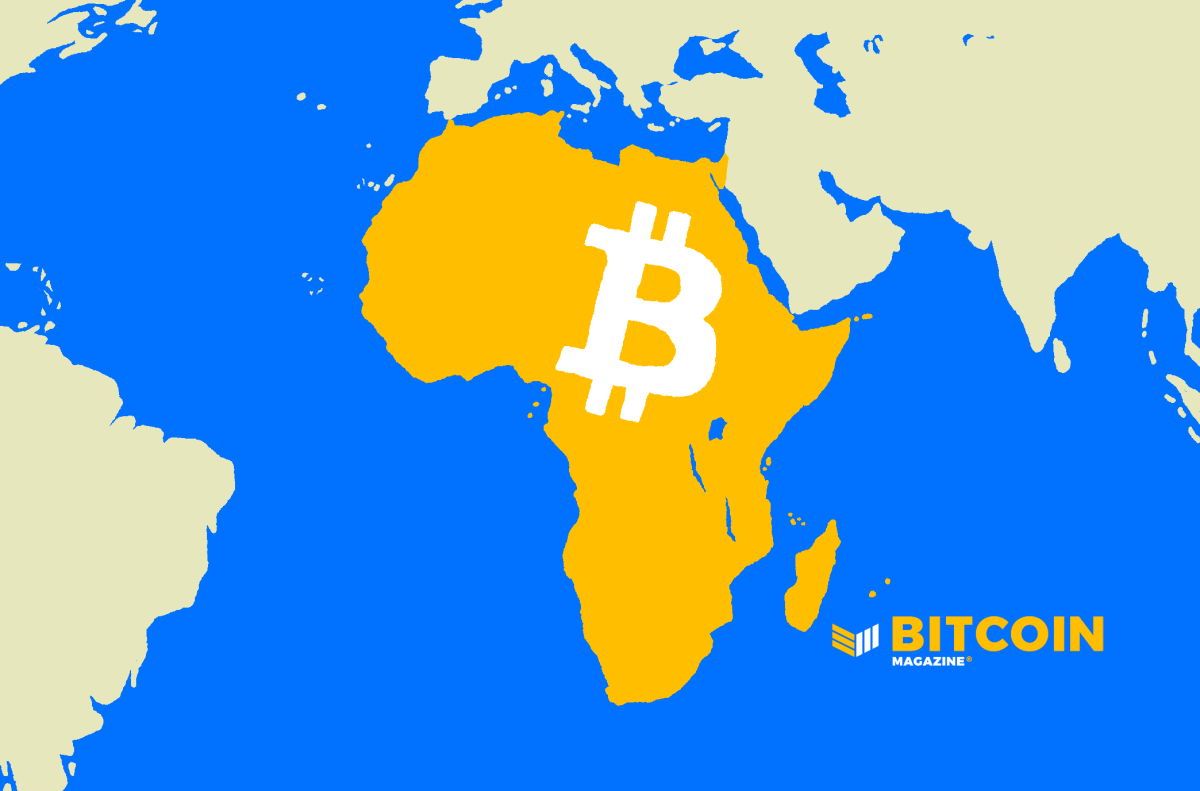

₿trust, a non-profit focused on training and funding developers from The Global South for Bitcoin open-source development, recently announced Bitcoin Core contributor and one of its board members, Abubakar Nur Khalil, as Interim CEO.
1/ 📢 Exciting news from ₿trust!
We're thrilled to announce that Abubakar Nur Khalil (@ihate1999), Nigerian Bitcoin Core contributor and current board member, has been appointed as Interim CEO of ₿trust pic.twitter.com/km5iYQU6Pe
— Btrust (@btrustteam) August 8, 2024
The non-profit was founded in 2021 and received initial funding from Jay-Z and Jack Dorsey. It’s since nurtured an ever-expanding network of Bitcoin developers in Africa, Latin America and India.
₿trust has trained hundreds of developers including some who are working on projects such as Libreria de Satoshi and Bitshala, kickstarted BitDevs meetups across five African cities and supported annual events like the African Bitcoin Conference.
Nur Khalil will serve as Interim CEO for one year, beginning in August 2024. During this period, he’ll retain his board seat and serve as a non-voting member.
This role should be familiar to Nur Khalil, as he founded the organization, which was originally called Qala, before ₿trust acquired and rebranded it.
Other ₿trust board members have expressed faith that Nur Khalil will be an excellent leader for the organization given his expertise as a developer, the fact that he’s a resident of The Global South (Nigeria) and is one of the leading voices in the African Bitcoin ecosystem.
“Ever since I first met him, Abubakar has resolutely focused on supporting the advancement of Bitcoin and open-source development in Africa, the Global South, and beyond,” said founding ₿trust board member and CEO of Fedi Obi Nwosu. “I’m grateful that he has taken on the challenge of leading ₿trust through this early formative stage, and I’m excited to see what he will achieve in the role.”
As Interim CEO, Nur Khalil will focus on growing ₿trust’s developer pipeline, increasing the number of grants the institution distributes and improving its developer program to push forward with its mission of decentralizing Bitcoin open-source development.
“I am truly grateful for the board’s trust in me to take on this role over the next year,” said Nur Khalil. “I look forward to growing our initiatives, ensuring ₿trust cements itself as the primary driving force behind Bitcoin’s development in Africa, and cultivating a unique Bitcoin FOSS ecosystem in the regions we serve.”
Source link
You may like


Tron’s Justin Sun Offloads 50% ETH Holdings, Ethereum Price Crash Imminent?


Investors bet on this $0.0013 token destined to leave Cardano and Shiba Inu behind


End of Altcoin Season? Glassnode Co-Founders Warn Alts in Danger of Lagging Behind After Last Week’s Correction
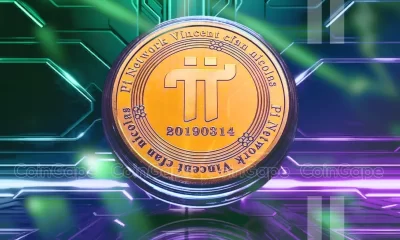

Can Pi Network Price Triple Before 2024 Ends?


XRP’s $5, $10 goals are trending, but this altcoin with 7,400% potential takes the spotlight


CryptoQuant Hails Binance Reserve Amid High Leverage Trading
Africa
Gridless Is Mining Bitcoin While Fostering Human Flourishing In Africa
Published
5 days agoon
December 18, 2024By
admin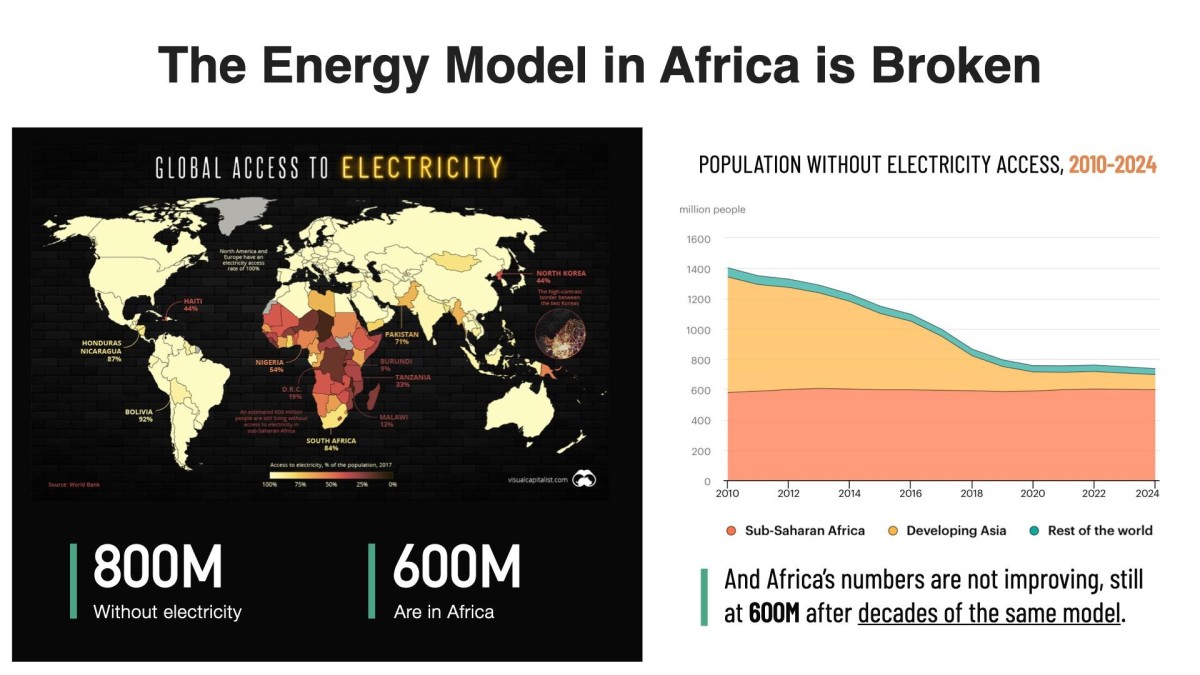
Company Name: Gridless
Founders: Janet Maingi, Erik Hersman and Philip Walton
Date Founded: August 2022
Location of Headquarters: United States | Operations in Kenya, Malawi and Zambia
Number of Employees: 10
Website: https://gridlesscompute.com/
Public or Private? Private
Gridless doesn’t just mine bitcoin — it helps to facilitate the electrification of rural Africa, which is notably improving the lives of those who previously either didn’t have access to power or couldn’t afford it.
Gridless’ co-founder Janet Maingi explained to Bitcoin Magazine how the company’s facilities, which are based in Kenya, Malawi and Zambia, have a win-win-win effect for the company itself, the Bitcoin network and the communities that benefit from Gridless’ operations.
“Our mission is to mine Bitcoin profitably,” Maingi told Bitcoin Magazine. “But as we do this, we also do two other things: we push electrification out to the edge in Africa and we decentralize the Bitcoin network, which has historically been very centralized to North America and China.”
In just over two years, Gridless has set a new standard for the type of impact a Bitcoin mining company can have, showing the world that Bitcoin mining can have a symbiotic relationship with the communities it touches and that it can be a catalyst for human flourishing.
I sat down with Maingi in person in Kenya after this year’s Africa Bitcoin Conference to discuss the work she does and the impact it has on the communities it reaches.
A transcript of our conversation, edited for length and clarity, follows below.
Frank Corva: How does Gridless help to electrify Africa?
Janet Maingi: About 600 million Africans have no access to electricity. That’s about two-thirds of our population. The private sector has stepped in because the main grids do not reach everyone on the continent.
You’ll find that bigger cities like Nairobi or Mombasa have electricity, but if you go to rural Africa, people have no access to electricity because of distribution challenges.

So, the private sector came and started setting up mini-grids. Private companies have done the best they can with these mini-grids. However, they’re very capital intensive, and so there are struggles with fundraising. And even when you actually get them set up, the consumers around your area might not be very wealthy. They’re just living day-to-day. They may have to consider “Do I need electricity or do I need food?”
The companies that construct the mini-grids build power plants that use hydro energy. Let’s say they want to build one that produces one megawatt of energy, but the community only ends up using 200 kilowatts. There’s 800 kilowatts that they generated from the river, but for that 800 kilowatts, they get zero shillings, zero dollars, zero anything.
So, we at Gridless come in and say “That electricity that you’re not able to send to anyone, is what we want.” That’s what you call stranded power or wasted energy, and it’s what we want. So, we become your buyer of last resort.
We come and create an agreement to use that extra electricity, and from a revenue sharing perspective, we work together. It’s a win-win situation. Our data centers use that electricity to mine bitcoin.
But then the catalyzing of electrification comes in. When we’ve used that electricity, it’s become a source of revenue for the energy power plant. They were not making money on that electricity previously, and now they’re profiting from it.
What have we seen as the effect? One, they are able to extend their reach, to distribute electricity further. And secondly, some of them have been able to actually lower their prices. So, consumers who are within their reach but wouldn’t use the electricity because of the cost are suddenly saying, “Hey, hook me up. I can afford to pay for this now.”
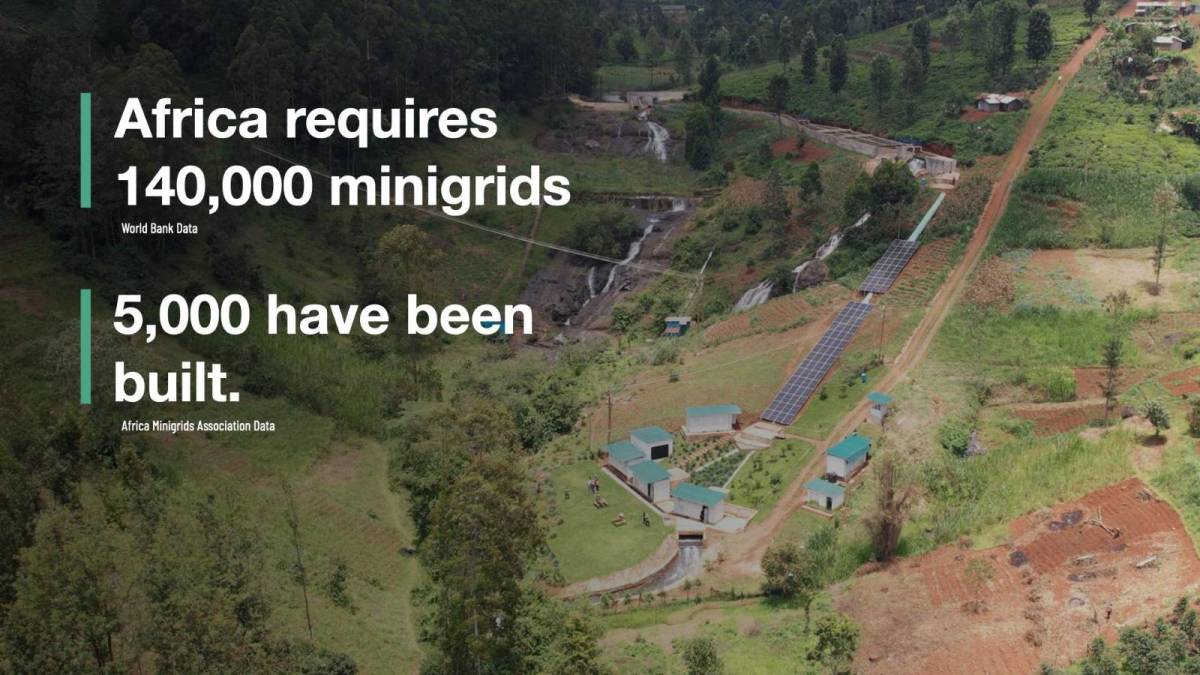
Corva: So, in a sense, you’re subsidizing the rate of electricity.
Maingi: Yes, because we come in and use this power, the energy generator is able to give better prices and increase its reach. So, again, what does this mean? More homes getting lit, more small enterprises getting electricity, more factories getting powered and more health centers getting electricity. You can now imagine the upward spiral effect.
However, the challenge is that doing business in Africa is like an extreme sport.
Corva: Why is that?
Maingi: So, let’s start with just getting the equipment. The mining machines come from China, either from Bitmain or MicroBT, or you’ll get them from a company in the U.S., and the process of getting them into Africa can be painful.
We received a batch that came from the U.S. and it took us 60 something days just to get them into the country. This is from putting them on a ship to getting them here. This doesn’t include figuring out the logistics around getting the miners on site and going through pre-shipment inspection to make sure that they meet the Kenyan standards.
It’s a process that takes almost 120 days from start to end. If you’re running a business, and it takes you 120 days to get your product on the ground, it’s painful.
Secondly, these machines are designed to work very well in China or the U.S.
Conditions in Africa are different, though.
Corva: Does this have anything to do with air quality?
Maingi: Air quality, dust, heat. In Kenya, average temperatures range from 20 to 40 degrees Celsius. So, when you power those machines in an environment where the average temperature is 30 degrees Celsius, you can imagine the heat that they have to deal with.
And then there’s dust. When you get a pre-fitted container from China or somewhere, you discover that the designers just focus on inflow and outflow. But we realized we have issues with dust, so we have to put dust filters on the machines.
And then, in 2022, we learned when we set up the first site that, because of the lights on the miners, they attracted bugs. During the rainy season, the bugs could see the lights and flew into the fans and got mashed up — something nobody thought about.
Lastly, the containers initially were going to cost us $100,000 each, which was too much for us to be profitable. The math didn’t math, as we say. So, we sat down and designed our own container.
Corva: Amazing.
Maingi: Right? And that’s what we’ve been deploying at a quarter of the price. And then the advantage that came with being made in Kenya has allowed us to get passage through the COMESA (Common Market for Eastern and Southern Africa) region, without having to pay extra duties or taxes because it’s recognized as a COMESA product.
That also helped because, being made in Kenya, it’s very easy for us to move the containers around the COMESA region without having to pay extra taxes. We get a tax exemption. Even if the containers from China made sense, if we brought them to Kenya and I had to move them to Uganda, I would have to pay taxes to Uganda, too.
Any country you move foreign products to, you have to pay taxes again. So, it’s been hard, but good solutions have come out of the difficulties.
Have you heard of GAMA, the Green Africa Mining Alliance?
Corva: Yes.
Maingi: During the first Africa Bitcoin Mining Summit last year, we released a blueprint of the container we designed. So, anyone who wants to use it to build their own container using our blueprint can feel free to do so.
Where you need our support, we’ll be ready to guide you. That’s the whole thing about GAMA — How do we exploit our synergies? How do we benefit from one another? How do we find a young lady who wants to start mining and walk her through the journey of getting started?
Corva: Incredible. I want to go back to electrification in Africa. You mentioned earlier that you wanted to share some numbers.
Maingi: What I was saying is that there’s a ripple effect when we partner with the energy generator. We’ve been able to see more homes or households getting connections.
If you’ve been in rural Kenya or Africa, then you understand how one bulb can transform a life. I’ll use the example of children coming home from school. They have assignments and use these tiny paraffin lamps to study. The fumes from them are horrible for their health. But this is a child for whom there’s no plan B. The teacher expects this child to come back to school with her assignments completed. Not having electricity is not an excuse.
A guy once told me that sometimes, when his daughter is busy doing an assignment, the paraffin runs out. When the nearest gas station is almost four miles away, who is going to go and look for paraffin at that time? Nobody. Tough luck.
So, the child gets to school and is either in trouble because she didn’t do her assignments or is now lagging behind because now those quote unquote “are yout personal problems.” Because of that one bulb they now have, he was like, “My daughter is performing so well in school.” Then, health wise, all these visits they used to make to the hospital because she was breathing in the paraffin fumes no longer happen.
Corva: It seems you want to make my cry.
Maingi: No, there’s no crying. (Author’s note: This woman doesn’t play.) It’s a reality.
Then, in Zambia, I remember talking to women who were talking about childhood vaccinations. Between zero and three years, there are certain vaccinations recommended by the WHO that your kid needs to get — measles, polio, etc. — but the nearest health center that has them sometimes isn’t close.
So, you do your math, and you’re like, “I can’t afford bus fare to do this.” And so this disease sounds more serious, I’ll get my child the vaccination for that one, while this one I’ll pass on. But really all of them are important for children.
Now, Gridless is coming into Malawi and getting electricity providers to connect more homes in the Bondo area. Health centers are getting powered on, so more vaccines are available in more local health centers.
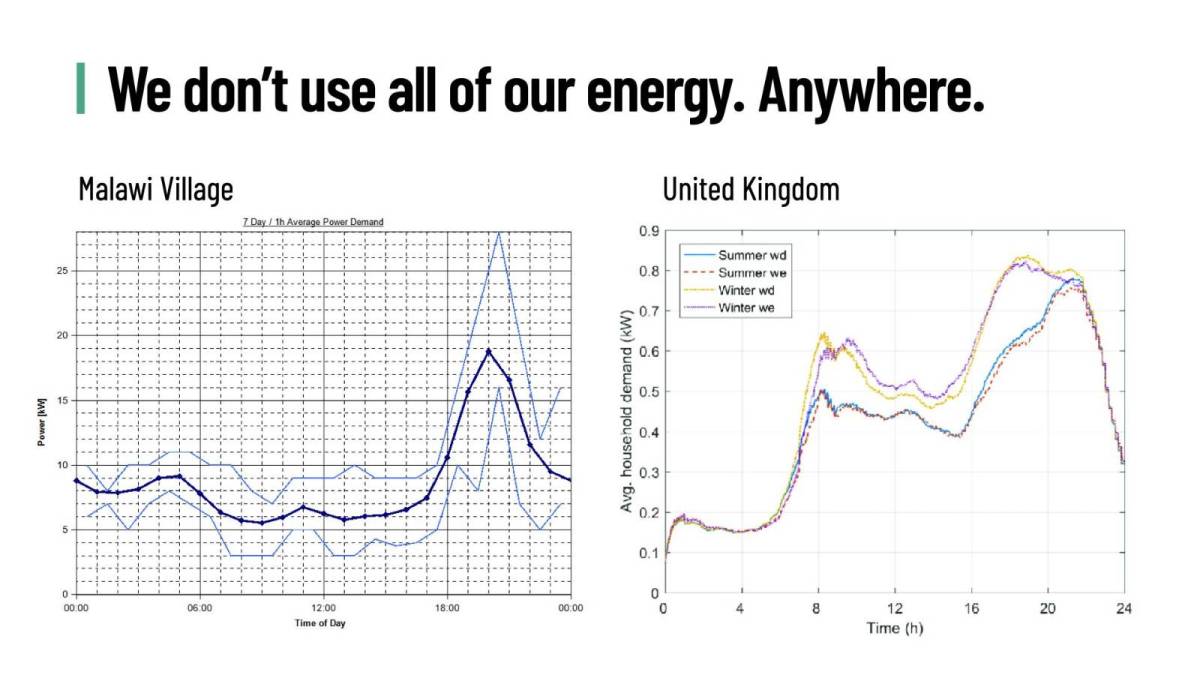
While before you used to say “Polio sounds serious, I’ll get my child that vaccine, but with measles, I don’t know who has died of that recently, so maybe, I won’t get my child that one,” now more people can get it.
Now, we will have a young generation who, we believe, as we keep doing this, is going to thrive. They’re going to grow. You’ll possibly get rid of childhood mortalities because these rural areas get electrified.
Corva: And bringing energy to these regions also helps support livelihoods I assume.
Maingi: Yes, of course. There’s a tea factory in Muranga, Kenya, which is in the highlands.
We partnered with the energy generator in the area and they were able to give the factory power. Now, their facilities are able to support the tea factory, which has two benefits: tea farmers can bring their tea to the factory, which means it doesn’t spoil on the farms because they can’t get it to point B in time and more employment has also been created just by that tea factory becoming an electrified space.
We keep saying why we know this will make a difference is because energy is a base of human progress.
Corva: There’s no such thing as an energy poor country that’s rich.
Maingi: If you look at the Maslow’s hierarchy of needs, it used to go food, shelter, clothing, but I put energy there. Energy is a basic need. It’s a must have for anybody to actually be allowed to live a decent life. For people to make a decent living, energy has to be in that math.
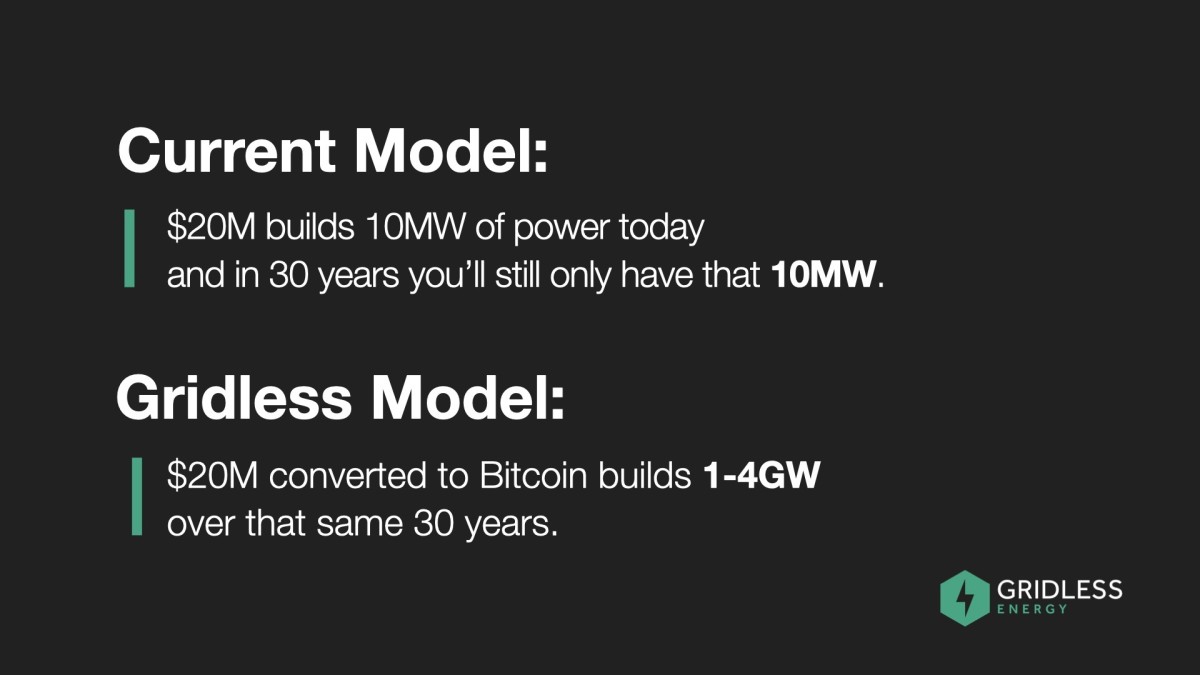
Corva: Is it true that you’ve recently created software that helps with energy demand response?
Maingi: Yes. We realized that we need to get more proactive in creating real-time demand response. Before, we were either reacting too late or too early to the power available.
Remember we’re the buyer of last resort, so communities come first and small businesses come second. For us to be able to live up to that promise, we had to make sure we weren’t sucking in electricity that was required by somebody else at that time.
So, let me paint a picture. In normal households, people wake up at 6 a.m., so there’s a surge of electricity. At that stage, our software gets a signal and reduces our consumption to meet the demand needed by the grid. Then, at 8 a.m., everybody goes to school and switches off their lights and there’s too much electricity in the grid. That’s when we power more mining machines.
We get the signal, power more machines, suck in the electricity and keep on going until maybe 6 p.m. when people have gotten back home and they need the electricity. Gridless turns down their machines and returns the electricity.
At 10 p.m. they all go to bed, and we power up more machines. This is all done with software we developed internally called Gridless OS. It allows for real-time demand response. It makes it so everybody gets what they need, and it stabilizes the grid.
Corva: Are you setting certain standards with Gridless that others are following in Africa or in other parts of the world?
Maingi: It’s set a trend that people are following. Sometimes you go to conferences and people keep referring to Gridless. That’s when you realize, “My God, this thing is bigger than we thought.” And so you start to understand how this has made a difference, that it doesn’t exist in a vacuum.
At the end of the day, everyone has different ways of mining bitcoin, and there’s a positive impact to the community whichever way you do it. Look at Bigblock Datacenter — Sebastian Gouspillou in the Congo — where they’re using the heat to dry cocoa for chocolate they sell. Think of what that has created for that economy.
Corva: I think Sebastian brought me to tears when I met him, too.
Maingi: What’s exciting for us and other players within this space is that we are the ones who understand our problems, and it’s exciting to see African companies deciding “Not only will I mine bitcoin profitably and decentralize the network, but there’ll be some benefit to our community, as well.”
Source link
5th Epoch
CORVA: Welcome To The Empowerment Epoch — Bitcoin As The People’s Money
Published
2 months agoon
October 14, 2024By
admin


At this year’s Oslo Freedom Forum, gigabrain Lyn Alden made the case that bitcoin is now liquid enough to be used in a human rights context, a compelling argument and one with which I agree.
Bitcoin, which now has a market cap of over $1.2 trillion, is less volatile than it was a decade ago and can now more readily be used to help empower those who’ve historically been financially disenfranchised. (The larger an asset’s market cap, the less volatile the price of the asset tends to become. When bitcoin had a much lower market cap in its early days, it wasn’t uncommon to see it lose over 80% of its value in crashes. For this reason, it would have been much harder to use it in a human rights context back then.)
Here are some examples of how Bitcoin is currently being used for human rights purposes:
- Bitcoin Dada educates African women about how to invest in and use Bitcoin. Many women in Africa live in patriarchal societies in which women aren’t permitted to own property. Bitcoin helps them subvert such rules, allowing them to save in the hardest asset ever known to humanity, with few being the wiser.
- Bitcoin Dua is a Bitcoin circular economy and a community center located in Ghana in which community members not only learn what Bitcoin is and how to use it but also skills that they can use to obtain jobs in which they can earn in bitcoin. This program is particularly relevant in a country in which the traditional currency was the worst-performing currency in the world in 2022 and continues to fall in value versus the US dollar.
- Lyudmyla Kozlovska, President of the Open Dialogue Foundation, someone who has been debanked by dictators herself, has been making the case to regulators in the United States and Europe that Bitcoin is a money and financial network of last resort for pro-democracy activists living under authoritarian regimes and that the right to use it needs to be protected. She argues that one of the first moves in the playbook of dictators these days is to cut dissidents off from the traditional financial system, leaving said dissidents with Bitcoin as their primary means to transact.
The work that these people, programs and institutions and the many others like them have done during the previous Bitcoin epoch has set the stage for the Empowerment Epoch — Bitcoin’s fifth epoch, the one in which it will become synonymous with the term “human rights.”
That said, this will not come without challenges.
High fees on the Bitcoin base chain will price certain users out of self-custody, pushing them to use Layer 2 solutions like Lightning and extensions of Lightning like ecash, non-traceable versions of sats that can be sent at almost no cost.
Companies like Fedi have developed a super app for the Global South that gives users access to Lightning, ecash and other freedom tech, while Machankura enables residents of various African countries to transact with bitcoin in a custodial manner using feature phones (non-smart phones). (Machankura is also working on turning feature phones into Bitcoin hardware wallets.)
Layer 2 solutions will not be perfect and there will be tradeoffs with each of them. But even considering the imperfections of the technologies that make bitcoin more usable, they still provide many around the world with access to a parallel financial system, serving as a hedge to the existing monetary and financial systems.
As new challenges arise, I have little doubt that organizations like the Human Rights Foundation will continue to bring activists and educators together with developers and entrepreneurs to meet these challenges and to help bring bitcoin — the people’s money — to those who need it most in this, the Empowerment Epoch.
This article is a Take. Opinions expressed are entirely the author’s and do not necessarily reflect those of BTC Inc or Bitcoin Magazine.
Source link
Africa
Stablecoins represent 40% of crypto economy in Sub-Saharan Africa
Published
3 months agoon
October 3, 2024By
admin
As businesses turn to dollar-pegged options, stablecoins now represent over 40% of Sub-Saharan Africa’s crypto economy.
Stablecoins have emerged as a vital component of Sub-Saharan Africa‘s crypto economy, accounting for approximately 43% of the region’s total transaction volume, according to a recent report from Chainalysis.
In nations grappling with volatile local currencies and limited access to U.S. dollars, dollar-pegged stablecoins such as Tether (USDT) and Circle (USDC) have gained prominence, enabling businesses and individuals to store value, facilitate international payments, and bolster cross-border trade.
In a commentary to Chainalysis, Yellow Card chief executive Chris Maurice said that “about 70% of African countries are facing an FX shortage, and businesses are struggling to get access to the dollars they need to operate.”
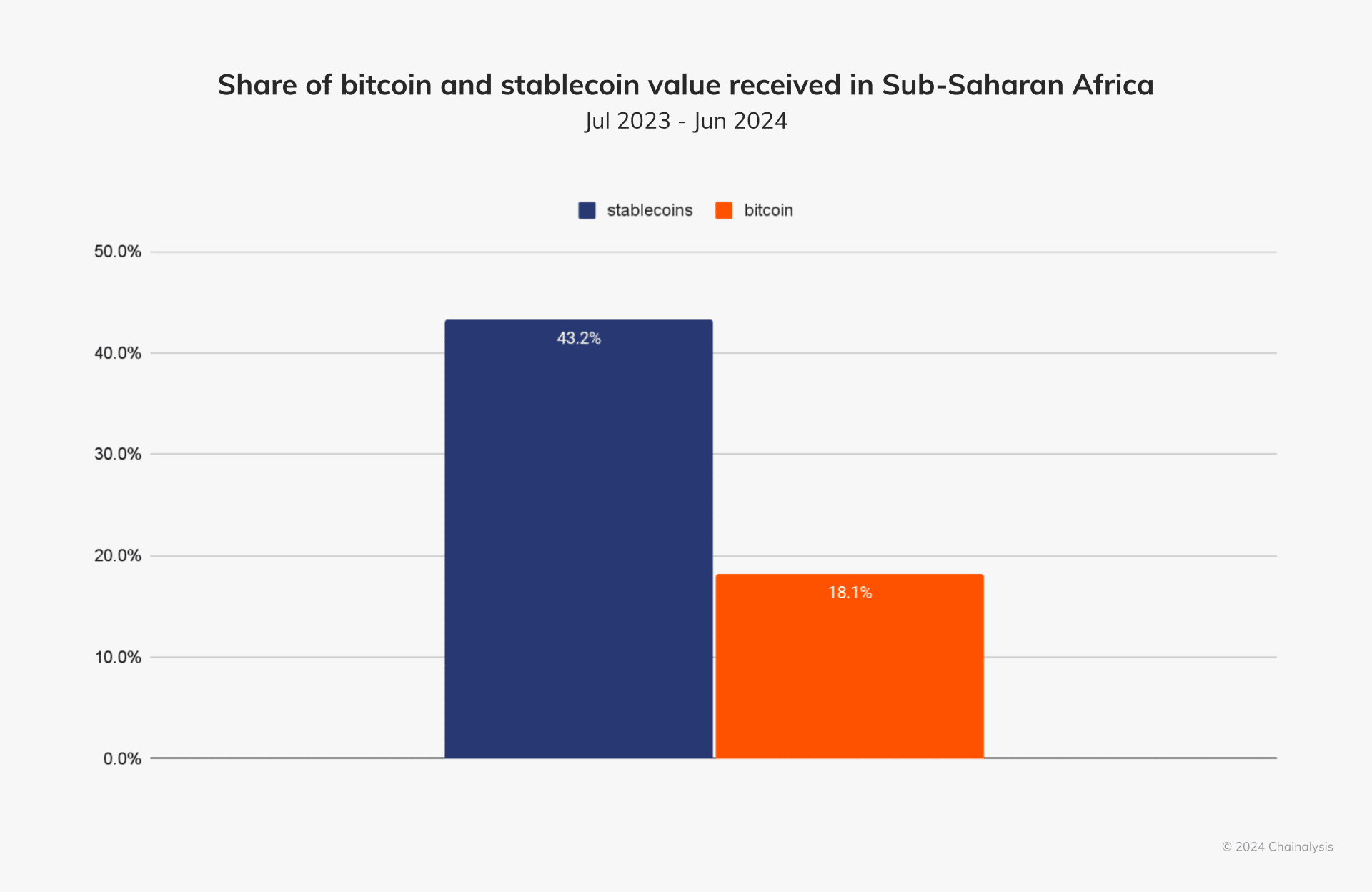
Stablecoins to become primary use case for crypto in South Africa
As a result of this struggle, Ethiopia, Africa’s second-most populous nation, has seen retail-sized stablecoin transfers grow by 180% year-over-year, fueled by a recent 30% devaluation of its local currency, the birr.
While traditional financial institutions struggle to meet the demand for U.S. dollars, stablecoins are increasingly viewed as a “proxy for the dollar,” Maurice said, adding that “if you can get into USDT or USDC, you can easily swap that into hard dollars elsewhere.”
Looking ahead, Rob Downes, head of digital assets at ABSA Bank, a major African bank operating in 12 African countries, foresees stablecoins playing a pivotal role in Africa’s economic landscape, stating that dollar-pegged tokens are going to be the “primary use case for crypto in South Africa over the next three to five years.”
Source link

Tron’s Justin Sun Offloads 50% ETH Holdings, Ethereum Price Crash Imminent?

Investors bet on this $0.0013 token destined to leave Cardano and Shiba Inu behind

End of Altcoin Season? Glassnode Co-Founders Warn Alts in Danger of Lagging Behind After Last Week’s Correction

Can Pi Network Price Triple Before 2024 Ends?

XRP’s $5, $10 goals are trending, but this altcoin with 7,400% potential takes the spotlight

CryptoQuant Hails Binance Reserve Amid High Leverage Trading

Trump Picks Bo Hines to Lead Presidential Crypto Council

The introduction of Hydra could see Cardano surpass Ethereum with 100,000 TPS

Top 4 Altcoins to Hold Before 2025 Alt Season

DeFi Protocol Usual’s Surge Catapults Hashnote’s Tokenized Treasury Over BlackRock’s BUIDL

DOGE & SHIB holders embrace Lightchain AI for its growth and unique sports-crypto vision

Will Shiba Inu Price Hold Critical Support Amid Market Volatility?

Chainlink price double bottoms as whales accumulate

Ethereum Accumulation Address Holdings Surge By 60% In Five Months – Details

Ripple Transfers 90M Coins, What’s Happening?
182267361726451435

Why Did Trump Change His Mind on Bitcoin?

Top Crypto News Headlines of The Week

New U.S. president must bring clarity to crypto regulation, analyst says

Will XRP Price Defend $0.5 Support If SEC Decides to Appeal?

Bitcoin Open-Source Development Takes The Stage In Nashville

Ethereum, Solana touch key levels as Bitcoin spikes

Bitcoin 20% Surge In 3 Weeks Teases Record-Breaking Potential

Ethereum Crash A Buying Opportunity? This Whale Thinks So

Shiba Inu Price Slips 4% as 3500% Burn Rate Surge Fails to Halt Correction

Washington financial watchdog warns of scam involving fake crypto ‘professors’

‘Hamster Kombat’ Airdrop Delayed as Pre-Market Trading for Telegram Game Expands

Citigroup Executive Steps Down To Explore Crypto
Mostbet Güvenilir Mi – Casino Bonus 2024

NoOnes Bitcoin Philosophy: Everyone Eats
Trending

 3 months ago
3 months ago182267361726451435

 Donald Trump5 months ago
Donald Trump5 months agoWhy Did Trump Change His Mind on Bitcoin?

 24/7 Cryptocurrency News4 months ago
24/7 Cryptocurrency News4 months agoTop Crypto News Headlines of The Week

 News4 months ago
News4 months agoNew U.S. president must bring clarity to crypto regulation, analyst says

 Price analysis4 months ago
Price analysis4 months agoWill XRP Price Defend $0.5 Support If SEC Decides to Appeal?

 Opinion5 months ago
Opinion5 months agoBitcoin Open-Source Development Takes The Stage In Nashville

 Bitcoin5 months ago
Bitcoin5 months agoEthereum, Solana touch key levels as Bitcoin spikes

 Bitcoin5 months ago
Bitcoin5 months agoBitcoin 20% Surge In 3 Weeks Teases Record-Breaking Potential


